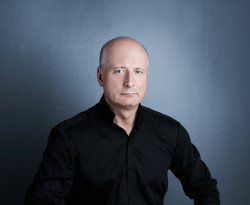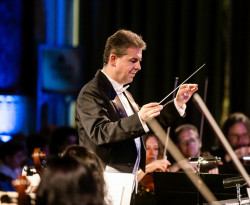
The Red Violin
Pannon Philharmonic
We regret to inform you that the concert has been postponed.
For more information, please contact the organiser of the concert, Pannon Philharmonic.
Thank you for your understanding!
Ticket prices
Add this event to your Google Calendar.
20th Century, but not Avant Garde As a composer, Bernstein is often stamped as a popular musician. John Corigliano's violin concerto owes its existence to a film score, and Ernst von Dohnányi is often described as a late disciple of Johannes Brahms. The works being played, therefore, are not even slightly part of the 'mainstream' current of modern music. But does that really mean they have little to reveal about what was to come? Or could it be that they simply use different means than what we are accustomed to from their contemporaries to say new things.
Presented by: Pannon Philharmonic
Sections
Conductor:
-
Tibor Bogányi
Featuring:
-
violinElina Vähälä
Parking information
We wish to inform you that in the event that Müpa Budapest's underground garage and outdoor car park are operating at full capacity, it is advisable to plan for increased waiting times when you arrive. In order to avoid this, we recommend that you depart for our events in time, so that you you can find the ideal parking spot quickly and smoothly and arrive for our performance in comfort. The Müpa Budapest underground garage gates will be operated by an automatic number plate recognition system. Parking is free of charge for visitors with tickets to any of our paid performances on that given day. The detailed parking policy of Müpa Budapest is available here.
Safe ticket purchase
Dear Visitors, please note that only tickets purchased from the Müpa website and official ticket offices are guaranteed to be valid. To avoid possible inconvenience, we suggest buying tickets to our performances and concerts via the mupa.hu website, the Interticket national network (jegy.hu) or at our official ticket offices.


